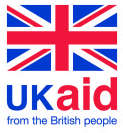We were fortunate to attend UNESCO’s 2017 Mobile Learning Week, where the theme was ‘Education in Emergencies and Crises’. We are currently witnessing the highest levels of displacement ever recorded – an estimated 65.3 million people worldwide (UNHCR, ‘2016 Global forced displacement hits record high’). UNESCO, in partnership with UNHCR and the ITU, convened policymakers, education and technology experts to discuss ways in which expanding the use of mobile technologies could be used to improve education opportunities for refugees and displaced persons in emergencies and times of crisis.
UNESCO’s Assistant Director-General for Education, Qian Tang, framed the conversation for the days ahead with these words in his opening keynote address:
“Mobile phones have transitioned from novelty items to lifelines. It is our task to find sustainable solutions to leverage this tool.”
Throughout the week, which included a symposium, workshops, strategy labs and a policy forum, we saw numerous examples of how mobile technology was being experimented with as a tool to support education for displaced populations and to facilitate lifelong learning. However, very few of these examples have been able to deliver these services at scale.
We were delighted to note that successful solutions that have scaled, or have the potential to do so, had implemented strong public-private partnerships (PPPs), many of which were established with the leadership of GSMA members – mobile network operators. Features of these PPPs included solid business models to ensure sustainability, carefully considered and localised user-centric approaches and perhaps most importantly, enabling policy environments driven by governments committed to delivering effective responses to the crises being faced.
Some inspiring projects spotlighted throughout the week included:
1.The Norwegian Agency for Development Cooperation (NORAD) announced two winning games of the EduApp4Syria competition, Feed the Monster and Antura and the Letters. NORAD has collaborated with international partners including GSMA member Orange, through their Orange Labs division, which is assisting in extensive outreach to promote the winning applications through communication campaigns. These two free games, available on the iPhone and Google Play app stores, are aimed at helping Syrian refugee children learn, play and cope with trauma.
2. Vodafone Instant Network Schools is enabling young refugees and teachers to access digital educational content and the internet through a kit deployed in Kenyan refugee camps. The digital ‘school in a box’ is designed to be set up in 20 minutes, and includes a laptop, with education software, tablets, projector, speaker and modem. This solution provides an opportunity for learning that had previously been out of reach to people in displaced communities where Vodafone operates.
3. Turkcell’s ‘Hello Hope’ app supports Syrian refugees by facilitating mobile learning opportunities to build Turkish language skills, includes instant speech translation between Turkish and Arabic and offers information about essential services in Turkey to refugees who are navigating the settlement process. Turkcell’s Strategic Planning Director, Aysem Ertopuz, explained that in the months following the launch of Hello Hope late last year, Turkish language flash cards had been viewed 90 million times on the app and the speech translation feature had been used 1.7 million times.
Speaking on the Syrian humanitarian crisis, Børge Brende, Norwegian Minister of Foreign Affairs stated in her keynote that, “We wanted to find new, effective and innovative ways to meet the critical need for literacy learning options for the estimated 2.5 million Syrian children whose education have been disrupted by six years of conflict. We must act now or we stand to lose an entire generation with huge long-term developmental effects.”
These sentiments from Norway were echoed during Friday’s Policy Forum. During the forum, senior representatives of government ministries and industry stakeholders concerned with education and information and communication technologies (ICTs), who also have involvement in the global humanitarian crisis, were featured on panels. Country representation included the UAE, Palestine, Turkey, Finland, the European Commission, South Sudan, and the Democratic Republic of Congo alongside members of industry including the GSMA, Telefónica, Vodafone, Orange, and Samsung. Panel topics focused on e-skills for sustainable development, education in emergencies, and how mobile can be used as a tool in both areas with an aim towards realising Sustainable Development Goal (SDG) 4 to, ‘ensure inclusive and equitable quality education and promote lifelong learning opportunities for all’.
Brahima Sanou, Director of the Telecommunication Development Bureau for the ITU, opened the forum by acknowledging that mobile technology is being increasingly adopted for use by governments, including in education. However, he reminded the audience that ultimately its use should be concerned with serving people, particularly those who are most in need of support.
The GSMA agrees with this perspective and it is why since September 2016 we have been working to highlight the mobile industry’s impact through contributions to the realisation of the 17 SDGs. We know that mobile technology has the potential to support quality education delivery. However, there are many hurdles yet to be overcome before we harness the full potential of mobile, particularly for displaced populations. As GSMA Foundation President Lawrence Yanovitch remarked during the Policy Forum, addressing affordability, accessibility and of services will ultimately be the keys to success for mobile learning and its sustainability.
We look forward to playing a role in achieving these aims moving forward, particularly through our work in Refugees & Connectivity and the GSMA Capacity Building programme, which offers free courses to government policymakers, including Mobile for Socio-Economic Development (with a digital literacy module) and Leveraging Mobile to Achieve SDG Targets (to be launched in 2017).
The GSMA Disaster Response Programme is currently funded by the UK Department for International Development (DFID), and supported by the GSMA and its members.


